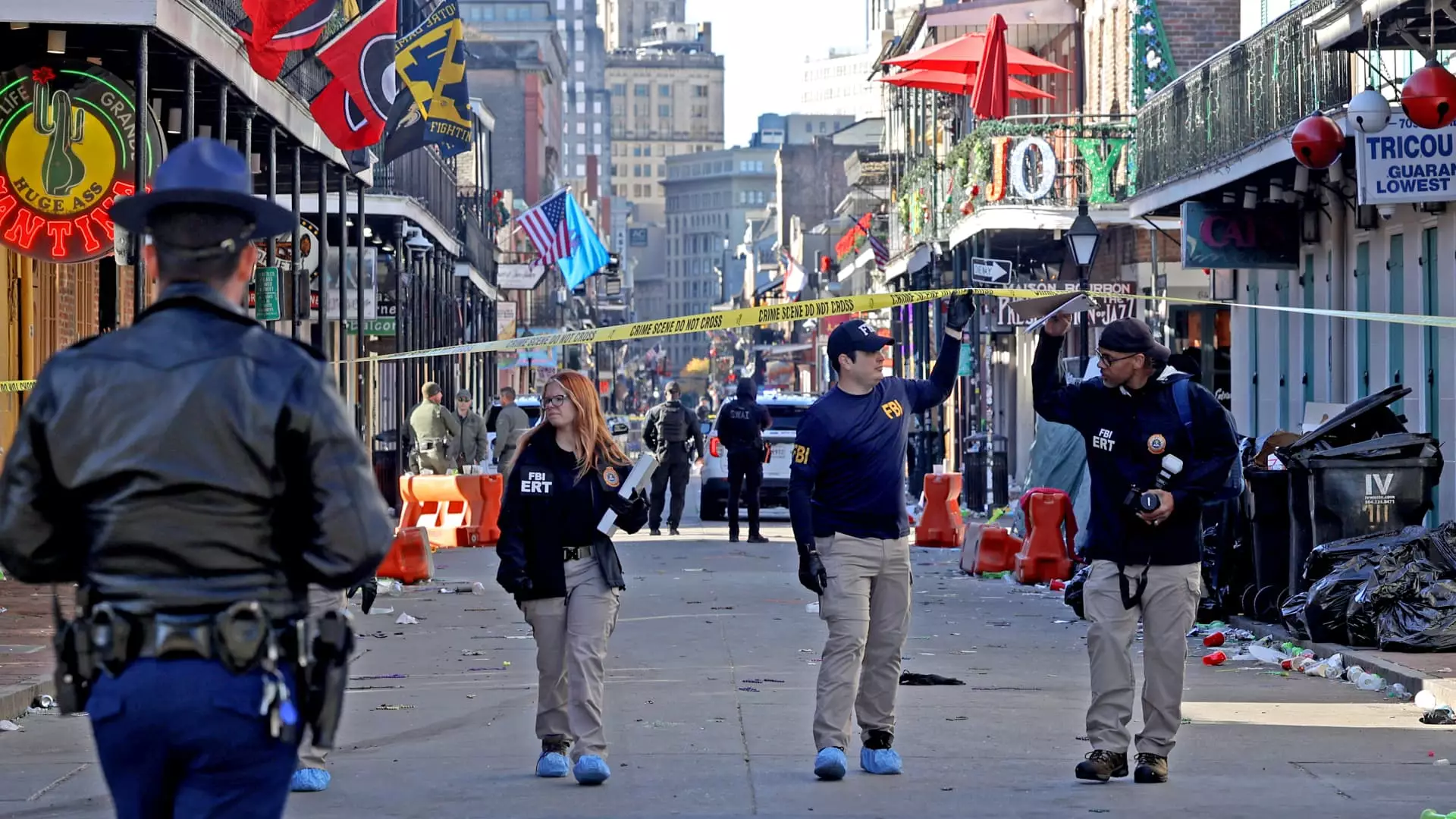The start of the New Year is often marked by celebrations and festivities; however, recent occurrences in New Orleans and Las Vegas have marred the holiday spirit. The incidents, which include a devastating car ramming in the heart of Bourbon Street and an explosion involving a Tesla Cybertruck outside a luxury hotel, have sparked investigations into potential links between the two events. This article aims to examine the unfolding narrative, the implications of such violence, and the broader discussions of security and public safety in celebratory environments.
New Year’s Day in New Orleans is renowned for its vibrant parties and immense crowds. Regrettably, this year’s celebrations turned dark when a pick-up truck, flying an ISIS flag, plowed into pedestrians. The carnage claimed 15 lives and left at least 30 injured. Eyewitness accounts depict a horrific scene, highlighting the shocking intensity of the assault. New Orleans Police Superintendent Anne Kirkpatrick emphasized the deliberate intent of the perpetrator, Shamsud-Din Jabbar, saying he was “hell-bent on creating the carnage.” As the investigation unfolds, it prompts an examination of the preventative measures in place during such significant public events.
Mayor LaToya Cantrell noted the absence of protective bollards that were still undergoing construction. Critically, the Mayor’s acknowledgment that these safety measures were incomplete raises fundamental questions about urban planning and the risks associated with hosting large gatherings without adequate protection for pedestrians.
Shifting focus to Las Vegas, the explosion of a Tesla Cybertruck near the Trump International Hotel added another layer of complexity to the narrative. Initial investigations uncovered a possibility that the suspect linked to the Las Vegas incident had military experience, similar to Jabbar, who also had a background in the U.S. Army. The simultaneous occurrence of these violent acts has raised eyebrows, leading officials to explore potential military connections between the suspects.
Authorities are delving into aspects of the suspects’ backgrounds, particularly the rented vehicles from Turo, which were associated with both incidents. This unusual link between them necessitates a meticulous examination of how such vehicles are rented and monitored, particularly in high-risk situations. The notion that individuals with military experience could be involved in acts of terror prompts discussions about radicalization and the vulnerabilities that exist within military circles.
As investigations progressed, the FBI has expanded its inquiries not only in New Orleans but also in Texas, where Jabbar was residing. Law enforcement agencies have adopted a multi-faceted approach, deploying SWAT teams and bomb technicians to investigate associated locations in Houston. The involvement of the FBI suggests that this is not merely a local incident but potentially interlinked with broader trends in domestic terrorism.
The combination of an attack focused on pedestrians and an explosion signifies an alarming trend; one that has implications for public safety during large-scale events. Security measures are likely to be heightened in response, especially as New Orleans prepares to host significant gatherings, including the Super Bowl in February. Society is left contemplating how incidents that occur on celebratory days can lead to lasting shadow effects on community morale and security perceptions.
In the aftermath of these tragedies, the residents of New Orleans are confronted with the dual task of mourning the victims while grappling with safety concerns. Public spaces are integral to the city’s identity, synonymous with a culture rooted in celebration and gathering.
As such, the outpouring of grief combined with tributes at the site of the incident has highlighted the resilience of communities. Even as authorities investigate, citizens have come together to honor the memories of those lost. The social fabric of New Orleans is undeniably woven with threads of joy and sorrow, illustrating the city’s enduring spirit in the face of adversity.
The intersection of these two violent events underscores the urgent need for comprehensive discussions regarding urban safety, mental health, and radicalization prevention. It demands a reevaluation of how public celebrations are secured, especially as they intersect with an increasingly complex landscape of societal threats.
As investigations unfold and connections are explored, it is critical for communities to unite not only in mourning but also in ensuring that lessons are learned to mitigate future risks. Public safety needs to be a paramount consideration as we navigate celebrations in an era where violence can shadow joyous occasions. Understanding the world we live in means acknowledging the nuanced challenges that lie in wait and striving to create environments that prioritize the well-being of all citizens.


Leave a Reply